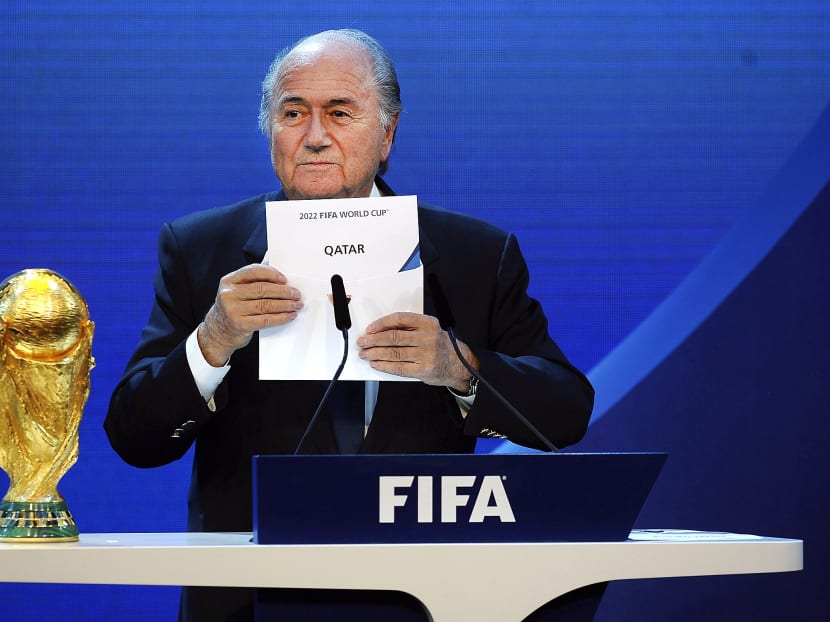World Cup boycott still a viable option
“To boycott or not to boycott?” That is the question facing the Football Association (FA) since its former chairman called for England to withdraw from the next World Cup.

The decision to pick Russia and Qatar to host the 2018 and 2022 World Cups, respectively, has come back to haunt Blatter and FIFA. PHOTO: GETTY IMAGES
“To boycott or not to boycott?” That is the question facing the Football Association (FA) since its former chairman called for England to withdraw from the next World Cup.
It may as well be asking itself, “To be or not to be?”, so suicidal would such a move prove for English football’s governing body.
Yet, amid all its calls for Sepp Blatter’s resignation and full disclosure of FIFA’s report into World Cup corruption, the FA has not publicly ruled out this nuclear option.
Despite all the potential financial sacrifices that would entail, this option may become viable as the battle lines are being drawn in what threatens to be a bitter power struggle at the top of the world game. Led by UEFA, FIFA’s European members are poised to challenge its supremacy in a way one source told Inside Sport could “reshape football forever”.
The events of the past week have proven the final straw for the European game’s governing body, senior figures from which have “had enough” of their masters in Zurich.
From the £19 million (S$38.7 million) splurged on Sepp Blatter’s vanity project, United Passions, to the suppression of Michael J Garcia’s report into the bidding process for the 2018 and 2022 World Cups, UEFA has been left aghast by the conduct of FIFA in recent months.
While there will be no about-turn by Michel Platini in his decision not to challenge Blatter for the presidency of the world governing body — a vote the Swiss appears to have already sewn up — UEFA is close to anointing a credible candidate to oppose the 78-year-old. The backing of that candidate — Jordan’s Prince Ali Bin Al-Hussein has been mooted — would represent the first step in its bid to hold FIFA to account.
“It could get pretty explosive,” the UEFA source said of its plans in the run-up to the elections in May.
The next step could be even more provocative, with senior figures rumoured to be considering inviting countries from other confederations to play in competitive tournaments in Europe.
That is against the backdrop of Blatter threatening to reduce European places at the World Cup, something UEFA would use all of its influence to resist. Which brings us back to the prospect of a boycott.
Let us make something clear: The FA would never unilaterally pull England out of the World Cup. Up until now, such drastic action is something only the FA and German FA out of the major national associations might have been willing to entertain, with a lack of support from others making it a non-starter.
The events this week could change all that, however, and it is not inconceivable a coalition of the willing is eventually formed from those countries protesting against FIFA corruption and Blatter’s refusal to resign, and those fighting his attempts to take away European World Cup places.
If England and Germany could enlist the support of a handful of other nations, that could be enough to hold FIFA to ransom. Boycotts are not officially on the agenda, but as the explosive fallout from FIFA’s corruption probe continues, it may not be long until they are. THE DAILY TELEGRAPH
Ben Rumsby is a sports correspondent at The Daily Telegraph.





